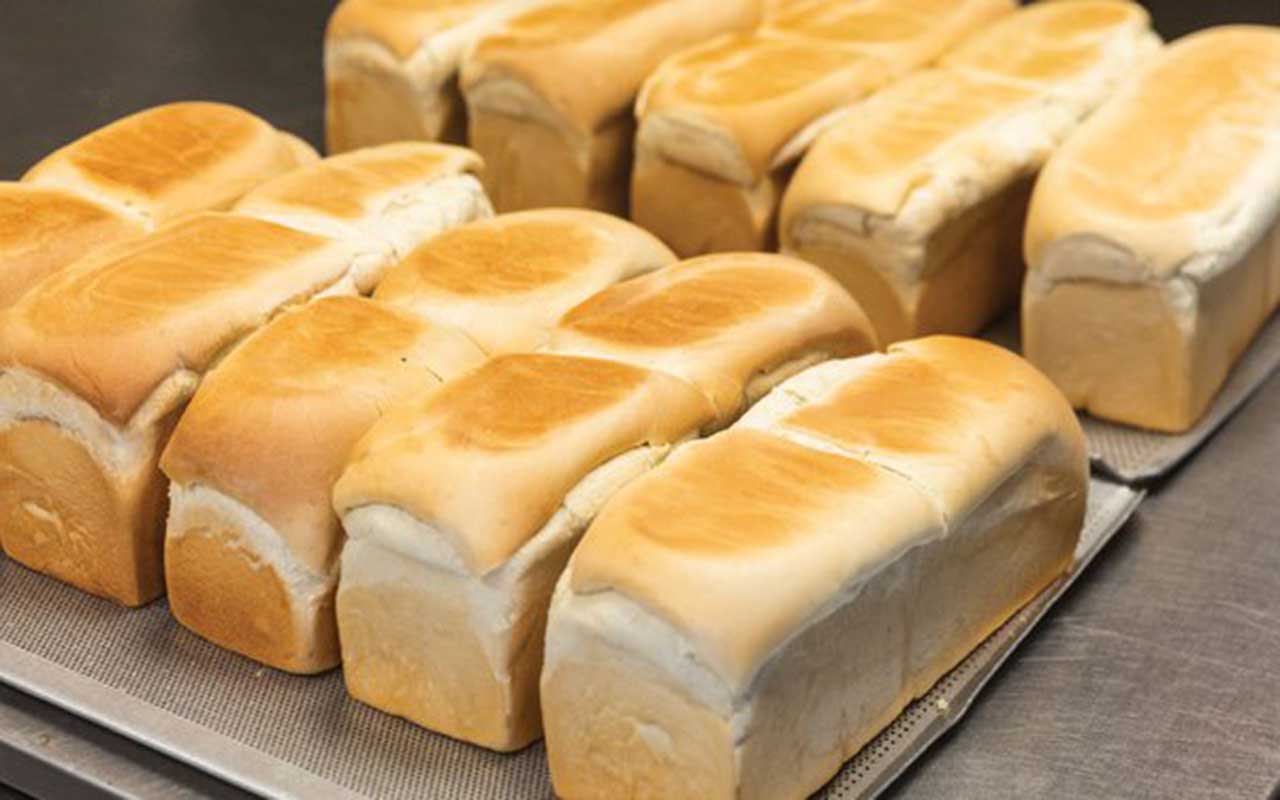 Bread, one of the daily food items in Nigeria, especially among those living in the cities, is now becoming what should be consumed with caution.
Bread, one of the daily food items in Nigeria, especially among those living in the cities, is now becoming what should be consumed with caution.
The worry came to the fore with the recent revelation by the Southwest Coordinator of the National Agency for Food, Drug Administration and Control (NAFDAC), Roseline Ajayi, that loaves of bread sold in different markets in the zone are failing laboratory tests because, instead of sugar, bakers are now using saccharine, a substance said to be injurious to human health.
The NAFDAC official, who also revealed that in the baking of bread, bakers are introducing other ingredients considered to be harmful to consumers’ health, said the agency would not compromise its standards.
Many people believe that these sharp practices are not happening only in the Southwest, it is the practice now across the country. It is believed that the tendency to make more money is making some bakers to return to the use of potassium bromate (KBrO3) banned in 2003 by NAFDAC. They urged relevant government agencies to investigate the matter, warning that KBrO3 cause bladder cancer and kidney failure.
But allaying the fear, YemisiAkorodele, a food technologist with Pharmy Drugs, Lagos, and part time baker, said the situation was not as bad as had been painted, arguing that saccharine has its good and bad sides.
According to her, saccharine is a low-calorie sweetener that provides sweetness for people managing their weight and do not want to take sugar because they are diabetic. The food sweetener is non-cariogenic, meaning, it does not contribute to tooth decay or cavities, it is ideal for people monitoring their blood sugar level, as it does not raise blood sugar levels.
The food technologist also claimed that though earlier studies linked the substance to bladder cancer, a recent research has declared the finding to be of no-conclusive evidence. She insisted that some individuals may experience gastrointestinal discomfort like bloating and diarrhea, the product is still safe if consumed according to the recommended daily quantity.
Comparing saccharine to sugar, the part-time baker said NAFDAC should be more concerned about sugar, which is considered to be more dangerous because of its link to Type 2 diabetes, obesity, heart diseases and certain type of cancers.
“Sugar activates the brain’s reward centres, leading to cravings and overconsumption, tooth decay and oral health challenges, and contributes to weight gain and obesity.Sugar’s negative effects are more pronounced when consumed excessively or in isolation, rather than as part of a balanced diet. While saccharine has its drawbacks, excessive sugar consumption poses more significant health risks,” she said.
What Is Saccharine; Why It Should Be Consumed Carefully
According to Britannica.com, saccharine is a brand of artificial sweetener made from granulated saccharine. When it was introduced in the United States of America in 1958, it was cyclamate-based until in 1969 when it was replaced by a saccharine-based formulation.
Generally known as Sweet and Low (Sweet ‘n’ Low), saccharine is widely used as a low-calorie alternative to sugar. Regulatory agencies, including, the United States Food and Drug Administration (FDA) consider it safe for human consumption.
The FDA recommends a maximum daily intake of 2.3 milligrams per kilogramme of body weight (mg/kg bw).The European Food Safety Authority (EFSA) sets an acceptable daily intake (ADI) of up to 0-5 mg/kg bw, while the Joint FAO/WHO Expert Committee on Food Additives (JECFA) recommends a maximum daily intake of 0-2.5 mg/kg bw.
In Nigeria, a maximum daily saccharine intake of 2.5 milligrams per kilogramme of body weight is recommended. For an average adult of 60 kilogrammes body weight, this translates to a maximum daily saccharine intake of 150 milligrammes. NAFDAC and the Nigerian Industrial Standard (NIS) do not permit its use in baking bread.
According to the National Library of Medicine in Bethesda, Maryland, USA, saccharine is 200 to 700 times sweeter than sugar and many people take it as alternative to sugar.
Which Is Safer: Sugar Or Saccharine?
Yinka Adefulu, a chef in one of the five stars hotels at Ikeja, Lagos argued that sugar is better in baking process because it helps fermentation, browning and crust formation, aside giving the loaves a mild taste.
According to him, saccharine is not broken down by yeast because it is already processed and as such would not ferment. He noted also that this might affect the texture and structure of the bread. To some extent, it may pose a health challenge to the consumer in the long run.
To Adalyn Ikime, a nutritionist with the Lagos University Teaching Hospital, (LUTH), consuming food that cannot be metabolised by yeast is harmful to man, as it could lead to the damage of some internal organs such as the bladder and kidney, or may even cause some allergic reactions or gastrointestinal upset. It is the reason cooks and bakers are advised to obey specific rules of baking and pastry when using any addictive or sweetener.
On the use of saccharine in bread baking, she stressed that despite the shortcoming trailing saccharine, the substance must have become accumulated in the body for a long time before manifesting any negative effects.
To Seyi Kris, a pharmacist, NAFDAC seems to have played the role of an alarmist by making public some of its findings in bread. According to him, many of the soft or carbonated drinks, biscuits, sweets and even drugs in the Nigerian market and even across the globe are spiced with saccharine to make them taste sweet. The agency is only trying to warn people to be moderate in the use f saccharine.
“It is common knowledge for any baker to use saccharine as substitute to sugar in baking, only that the quantity used must be much smaller than sugar due to its intense sweetness; it is 300 to 800 times sweeter than sugar. So, making the bread excessively sweet, most consumers will give it a shun effect. I believe the quantity of saccharine complained to be in the Ibadan-baked bread must be small and not harmful,” he said.
According to Kris, saccharine is rapidly excreted from the body primarily through the kidneys. It is absorbed into the bloodstream within 15-60 minutes of consumption but eliminated in approximately two to four hours.
“Saccharine does not last in the human body because about 70 to 80 per cent of it is passed out of the body through urine within eight hours. About 90 per cent is excreted within 24 hours, while almost 100 per cent leaves the human system within 48 to 72 hours. However, repeated consumption may lead to accumulation in the body, but this is still considered safe within the recommended daily intake limits,” he said.
Why We Use Saccharine
Isiaka Dawodu, who manages his father’s bakery in Agege, Lagos, said NAFDAC should have told the public the type of bread its officials tested. According to him, there are different categories of bread, ranging from whole wheat to flatbreads, banana bread, cornbread, brioche, challah, muffins and sweet bread. ‘Some of these loaves need plenty of sugar to be added to them to merit their names. Some of them are specially made to be so flat to taste as if one is merely chewing cotton wool, yet very nourishing. So, it all depends on the type of bread an individual wants.
‘In a society, where many bread consumers cannot even differentiate a particular type of bread from the other, they just believe that anything called bread is bread. This is not true because a loaf of bread must have specific ingredients.’
Dawodu said many bakers were exploiting the ignorance of many consumers to mix anything, including sweetener, and bake in the name of bread, especially at the grassroots and consumers would buy.
‘Even if the people at a particular location understand that a particular bakery is bringing out unhealthy bread, the baker would only need to take his product to another location or sell them at night. Nigeria has a big market and the people are hungry. No hungry person is ready to check if the sweetener is saccharine or sugar, their aim is survival, while the target of the baker is profit,” he said.
Dawodu noted that bakers use saccharine because sugar is now very expensive and if they keep on buying it at a high price for their business, many would close shop. According to him, a 50kg bag of sugar that is now sold between N90,000 and N100,000 was before now sold under N40,000, while a 25kg bag of saccharine is sold for between N165,000 and N180,000 depending on the location of purchase.
According to him, a 50kg bag of sugar can effectively take care of about 2,500 loaves of bread depending on the size and taste while a25kg bag of saccharine would cover eight to 10 times of the number of loaves sugar covers. The Agege-based baker argued that going by these calculations, saccharine is much cheaper to use than sugar.
“Besides, bakers have been using saccharine for long; it is not a new thing. However, this current concern came up as a result of the high cost of things in the country. Apart from saccharine, other ingredients used for baking of bread have rapidly increased in cost, making bakers to look for alternatives so that they can remain in business,” he said.
The Way Out
As the worry continues, some Nigerians are putting the blame of bakers using saccharine on the various food monitoring agencies in the country who are accused of being too relaxed in carrying out their duties.
Madam Sikiratu Oyewunmi, whose family depends on bread for their breakfast and sometimes mid-day meal, stressed the need for NAFDAC to collaborate with other agencies to rid the market of any bread that they consider as unhealthy.
Specifically, she urged NAFDAC to enforce the use of labelling and listing of the ingredients on the bread label so that anybody buying or eating will be fully aware of the content, noting that different bread has different ingredients though there are some ingredients common to many breads.
Chiedozie Nwaeke, a bread dealer, advised that the issue should be tackled from various angles because while some people tell dealers that saccharine is good for the body, others say it is dangerous.
With this confusion, the regulatory agencies should educate the people on the ingredients necessary for healthy bread, and make them know that the use of saccharine is not allowed in bread baking in Nigeria.
‘Some bread dealers do not even have the right information about the product they are selling. I can categorically tell you that some bakers do not know the health implications of using saccharine or even the quantity to be used at a particular time to make the bread taste mild. All what some want is to make their loaves of bread taste very sweet, make sales and make huge profits to cover the expenses incurred. Apart from this, any baker that goes against the rules for baking bread should be made known to the public and heavily fined to serve as a deterrent because he or she is anti-people in his or her business operation,” he said.
Nwaeke advised the government to set up a monitoring team comprising officials of NAFDAC, bakers association, health agencies as well as consumers to monitor and enforce compliance with the rules for bread baking in the country.






